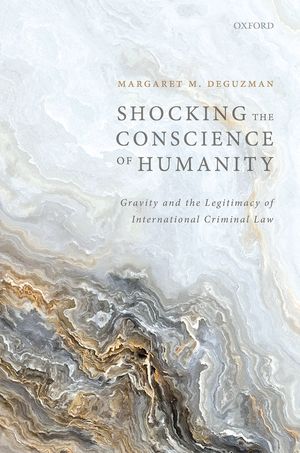
The literature and jurisprudence of international criminal law rely heavily on the claim that international crimes are exceptionally grave. Such crimes are said to 'shock the conscience of humanity', to constitute 'atrocities', and this gravity is invoked to justify international authority over the crimes and the people who commit them. Yet commentators and judges rarely explain what makes international crimes especially grave or how the gravity of the crimes affects the legitimacy of international criminal law's norms and institutions.
In Shocking the Conscience of Humanity, DeGuzman answers these questions, elucidating the historical forces that produced an international criminal law regime that relies on claims about gravity, and explaining the consequences of that reliance for the regime's legitimacy. She proposes a new framework for evaluating the legitimacy of international criminal law, arguing that a regime that is firmly rooted in global community values rather than in ambiguous notions of gravity is likely to enjoy greater support around the world.